Student Union
Board approves more non-lethal weapons for UCLA police after Israel-Hamas war protests
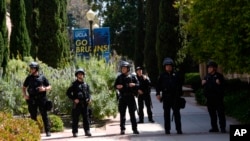
The University of California board of regents approved Thursday additional non-lethal weapons requested by UCLA police, which handled some of the nation's largest student protests against the Israel-Hamas war.
Clashes between protestors and counter-protestors earlier this year on the campus led to more than a dozen injuries, and more than 200 people were arrested at a demonstration the next day.
The equipment UCLA police requested and the board approved included pepper balls and sponge rounds, projectile launchers and new drones. The board also signed off on equipment purchase requests for the nine other police departments on UC campuses.
Student protesters at the regents meeting were cleared from the room after yelling broke out when the agenda item was presented.
Faculty and students have criticized UCLA police for their use of non-lethal weapons in campus demonstrations, during which some protesters suffered injuries.
During public comment, UCLA student association representative Tommy Contreras said the equipment was used against peaceful protestors and demonstrators.
"I am outraged that the University of California is prioritizing funding for military equipment while slashing resources for education," Contreras said. "Students, staff and faculty have been hurt by this very equipment used not for safety but to suppress voices."
California law enforcement agencies are required by state law to submit an annual report on the acquisition and use of weapons characterized as "military equipment." A UC spokesperson called it a "routine" agenda item not related to any particular incidents.
"The University's use of this equipment provides UC police officers with non-lethal alternatives to standard-issue firearms, enabling them to de-escalate situations and respond without the use of deadly force," spokesperson Stett Holbrook said.
Many of the requests are replacements for training equipment, and the drones are for assisting with search and rescue missions, according to Holbrook. The equipment is "not military surplus, nor is it military-grade or designed for military use," Holbrook said.
UCLA police are requesting 3,000 more pepper balls to add to their inventory of 1,600; 400 more sponge and foam rounds to their inventory of 200; eight more "less lethal" projectile launchers; and three new drones.
The report to the regents said there were no complaints or violations of policy found related to the use of the military equipment in 2023.
History professor Robin D.G. Kelley said he spent an evening with a student in the emergency room after the student was shot in the chest during a June 11 demonstration.
"The trauma center was so concerned about the condition of his heart that they kept him overnight to the next afternoon after running two echocardiograms," Kelley said the day after the student was injured. "The student was very traumatized."
UC's systemwide director of community safety Jody Stiger told the board the weapons were not to be used for crowd control or peaceful protests but "life-threatening circumstances" or violent protests where "campus leadership have deemed the need for law enforcement to utilize force to defend themselves or others."
See all News Updates of the Day
Fewer students disclose race in applications to top colleges
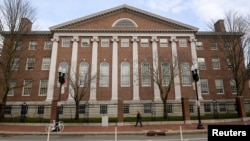
FAfter the Supreme Court’s decision to end affirmative action in college admissions last year, fewer students are disclosing their race or ethnicity in applications to top colleges.
Writing in USA Today, Zachary Schermele notes that the data is preliminary, but it could signal a change in the way students are approaching college applications. (October 2024)
Overall college enrollment is up, first-year enrollment down
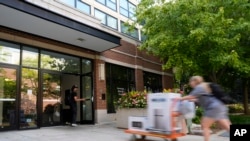
For the second year since the beginning of the COVID-19 pandemic, college enrollment has climbed in the United States.
But the National Student Clearinghouse Research Center noticed a substantial drop in the number of freshmen, which could be troubling for future enrollment, according to a report in Forbes. (October 2024)
South African universities embrace AI, seeing it as equalizing tool
The rise of AI tools like ChatGPT has sparked debate in higher education, raising questions about ethics and integrity in teaching, learning and knowledge creation. In South Africa, some academic institutions are taking a proactive approach, integrating AI into their curricula. Experts say this step is not only innovative but also helps level the playing field among students. Zaheer Cassim reports from Johannesburg.
International students may be able to get jobs at school
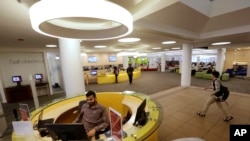
International students studying in the United States may be able to work on campus.
Jobs can include working in libraries, labs, food service and dormitories – but students will have to research the rules before applying for jobs, according to U.S. News & World Report. (September 2024)
Report says college rankings have the potential to mislead
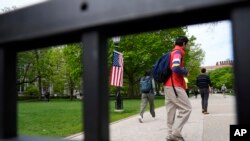
Each year, prominent lists of college and university rankings are compiled and released to the public, but a report conducted by NORC at the University of Chicago says those rankings have the potential to mislead.
Writing in Forbes, Vanderbilt University Chancellor Daniel Diermeier says changing methodologies can distort results, and profit motives can create doubt. He argues that rankings should be replaced by an objective rating system. (September 2024)








